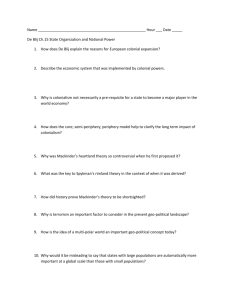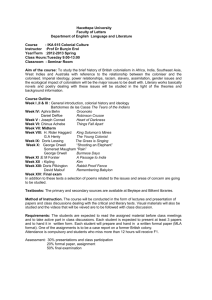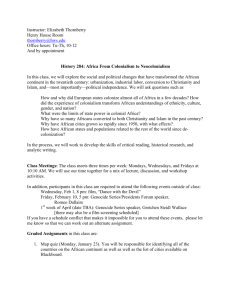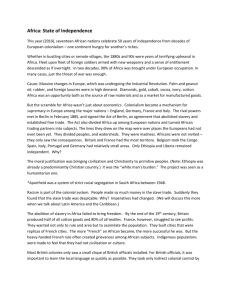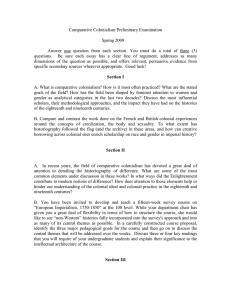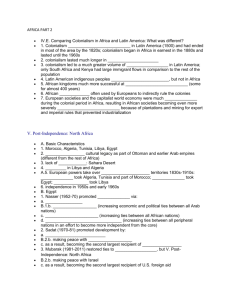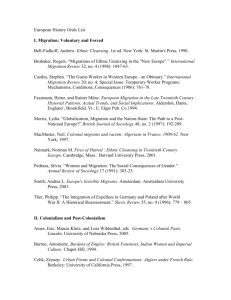Fanon and Malik
advertisement
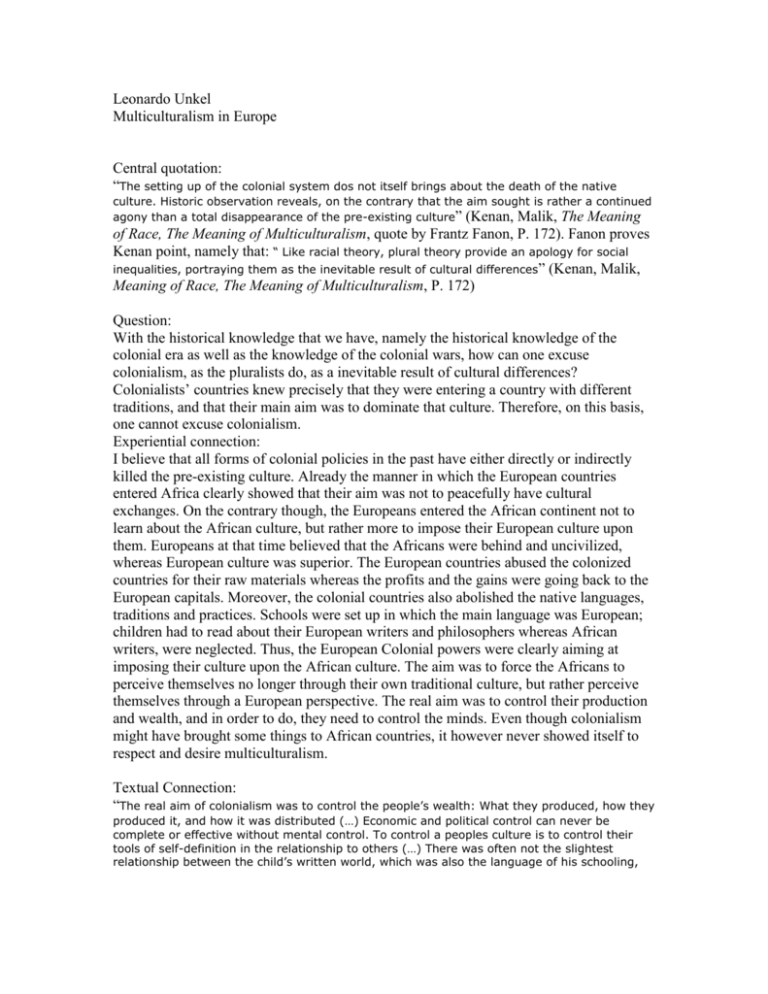
Leonardo Unkel Multiculturalism in Europe Central quotation: “The setting up of the colonial system dos not itself brings about the death of the native culture. Historic observation reveals, on the contrary that the aim sought is rather a continued agony than a total disappearance of the pre-existing culture” (Kenan, Malik, The Meaning of Race, The Meaning of Multiculturalism, quote by Frantz Fanon, P. 172). Fanon proves Kenan point, namely that: “ Like racial theory, plural theory provide an apology for social inequalities, portraying them as the inevitable result of cultural differences” (Kenan, Malik, Meaning of Race, The Meaning of Multiculturalism, P. 172) Question: With the historical knowledge that we have, namely the historical knowledge of the colonial era as well as the knowledge of the colonial wars, how can one excuse colonialism, as the pluralists do, as a inevitable result of cultural differences? Colonialists’ countries knew precisely that they were entering a country with different traditions, and that their main aim was to dominate that culture. Therefore, on this basis, one cannot excuse colonialism. Experiential connection: I believe that all forms of colonial policies in the past have either directly or indirectly killed the pre-existing culture. Already the manner in which the European countries entered Africa clearly showed that their aim was not to peacefully have cultural exchanges. On the contrary though, the Europeans entered the African continent not to learn about the African culture, but rather more to impose their European culture upon them. Europeans at that time believed that the Africans were behind and uncivilized, whereas European culture was superior. The European countries abused the colonized countries for their raw materials whereas the profits and the gains were going back to the European capitals. Moreover, the colonial countries also abolished the native languages, traditions and practices. Schools were set up in which the main language was European; children had to read about their European writers and philosophers whereas African writers, were neglected. Thus, the European Colonial powers were clearly aiming at imposing their culture upon the African culture. The aim was to force the Africans to perceive themselves no longer through their own traditional culture, but rather perceive themselves through a European perspective. The real aim was to control their production and wealth, and in order to do, they need to control the minds. Even though colonialism might have brought some things to African countries, it however never showed itself to respect and desire multiculturalism. Textual Connection: “The real aim of colonialism was to control the people’s wealth: What they produced, how they produced it, and how it was distributed (…) Economic and political control can never be complete or effective without mental control. To control a peoples culture is to control their tools of self-definition in the relationship to others (…) There was often not the slightest relationship between the child’s written world, which was also the language of his schooling, and the world of his immediate environment in the family” (Ngugi Wa Thiong’o, Decolonising the Mind, P. 16-17, 1986, Reed publishing, U.S.A). Implications: I believe that the above written quotation clearly shows the real aim of colonialism and the traces of colonialism have left upon a number of African countries. It cannot be argued that colonialism intended to have cultural exchanges, and thus live in a multicultural world, but rather more, the real aim was to impose a culture upon another culture.
